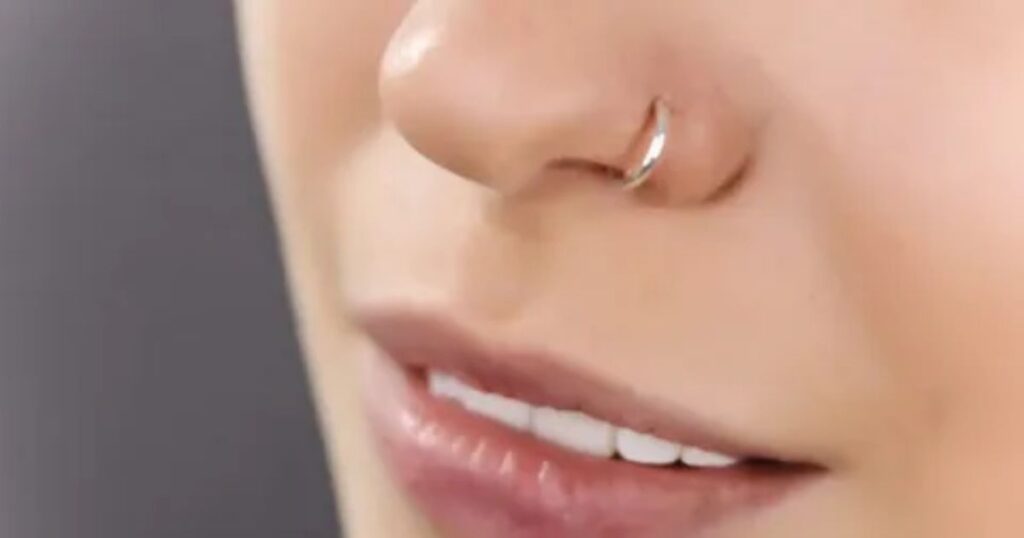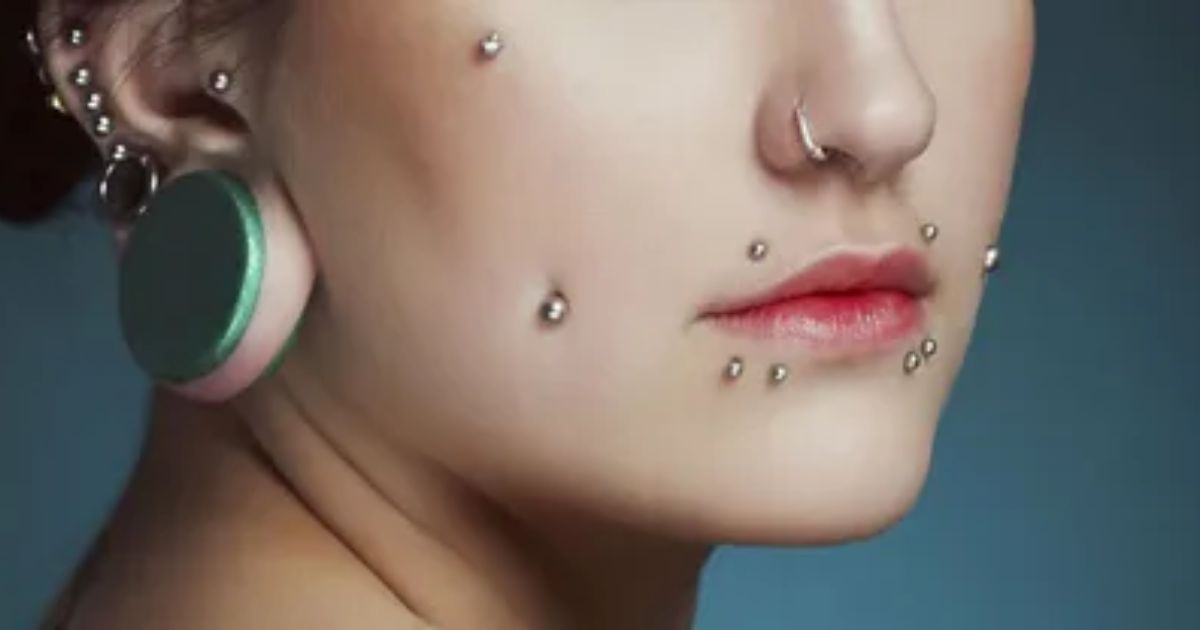When considering what metal is best for nose piercings, it refers to the most suitable types of metals or materials used in crafting nose jewelry to minimize the risk of irritation or allergic reactions.
Understanding the ideal metals for nose piercings is essential for both the piercing process and subsequent healing. What metal is best for nose piercings? This question often sparks curiosity among individuals considering a nose piercing. The choice of metal plays a significant role in preventing potential discomfort or adverse reactions that might arise post piercing.
Some of the recommended metals for nose piercings include surgical stainless steel, titanium, and niobium. These metals are hypoallergenic and less likely to cause irritation or allergic reactions, making them suitable choices for initial nose jewelry. Avoiding metals like nickel is crucial as they are known to cause allergic reactions in many individuals.
Ideal Metals Ensuring Safe Nose Piercings
Choosing the right metal for your nose piercing is pivotal in ensuring a smooth and trouble free experience. Hypoallergenic metals such as surgical stainless steel, titanium, and niobium are highly recommended due to their low reactivity and reduced risk of causing allergic reactions.
These metals are biocompatible and less likely to trigger irritations, allowing for a comfortable healing process.
It’s essential to avoid metals like nickel that are known to cause allergic reactions in many individuals. These reactions can lead to redness, itching, and prolonged healing times. By opting for hypoallergenic metals, you significantly reduce the chances of encountering such issues, promoting a successful nose piercing experience.
Allergic Risks Metal Selection for Nose Piercings
Allergic reactions can be common with certain metals used in nose piercings. Nickel, in particular, is notorious for causing skin irritations and allergic responses. When the body comes into contact with nickel, it can result in redness, swelling, and discomfort around the piercing area.
To prevent these reactions, individuals with sensitive skin should opt for hypoallergenic metals like surgical stainless steel, titanium, or niobium.
These hypoallergenic metals have a minimal likelihood of causing allergic responses, making them suitable choices for initial nose jewelry. Taking precautions and selecting the right metal can significantly reduce the risks of allergic reactions and ensure a smoother healing process.
Healing Best Metals for Smooth Nose Piercing
| Metal Type | Biocompatibility | Allergy Risk |
| Surgical Steel | High | Low |
| Titanium | Excellent | Very Low |
| Niobium | Very High | Minimal |
This table summarizes the biocompatibility and allergy risk of different metals commonly used in nose piercings. Surgical steel offers high biocompatibility with relatively low allergy risk. Titanium boasts excellent biocompatibility and very low allergy risk.
Niobium provides very high biocompatibility with minimal allergy risk, making these metals favorable for nose piercings, especially for individuals prone to allergies.
Hypoallergenic Choices for Nose Piercings
Opting for hypoallergenic metals for nose piercings is crucial, especially for those with sensitive skin or known metal allergies. Surgical stainless steel, titanium, and niobium are among the top choices due to their inert nature and reduced potential to cause adverse skin reactions.
These metals are widely recognized for their compatibility with the body and are often recommended by professional piercers for initial jewelry.
It’s important to note that individual reactions may still vary. While these metals are generally well tolerated, some people may still experience mild irritation. Regular cleaning and following aftercare instructions are vital to promote healing and reduce the risk of any complications.
Optimal Metals Nose Piercing Considerations

When considering the optimal metal for a nose piercing, factors beyond allergy risks come into play. The durability and corrosion resistance of metals like titanium make them favorable choices for long term wear. Some individuals might prefer the aesthetic appeal of certain metals over others, influencing their selection.
It’s advisable to consult with a professional piercer to determine the best metal choice based on individual factors like skin sensitivity, healing tendencies, and personal preferences. A skilled piercer can provide tailored recommendations, ensuring a successful and comfortable nose piercing experience.
Sensitivity and Nose Piercing Metal Selection
Understanding your body’s sensitivity to certain metals is crucial when selecting jewelry for a nose piercing. Even metals labeled as hypoallergenic may not guarantee a reaction free experience for everyone.
Skin sensitivity can vary, so it’s essential to conduct a patch test or seek advice from a dermatologist before committing to a particular metal for your nose piercing. Monitoring your body’s response after the piercing is essential. Any signs of persistent redness, itching, or inflammation should prompt a visit to your piercer or healthcare professional for further guidance.
Compatibility Metals and Nose Piercings
The compatibility between metals and 2pac have his nose piercings extends beyond allergic reactions. Metals like gold, while generally considered safe for many people, might not always be suitable for initial piercings due to their purity levels. Higher purity gold can be softer and more prone to scratches or bending, potentially causing complications during the healing process.
Understanding the specific characteristics of each metal and how they interact with the body’s healing process is key to making an informed decision about nose piercing jewelry.
Avoiding Irritation Metal Options for Nose Piercings
Aside from selecting hypoallergenic metals, ensuring the proper fit and style of the nose jewelry can also prevent irritation. Choosing jewelry with smooth finishes and appropriate sizing reduces friction and discomfort, promoting better healing.
regularly cleaning the piercing area with saline solution and avoiding harsh chemicals or excessive touching can aid in preventing irritation and fostering a healthy healing environment.
Selection Criteria Best Metal for Nose Piercings
When determining the best metal for your nose piercing, consider factors such as biocompatibility, allergy risk, durability, aesthetic appeal, and professional recommendations.
Taking these criteria into account ensures a well informed decision that prioritizes both comfort and successful healing. Consulting with a knowledgeable piercer remains instrumental in guiding you toward the most suitable metal for your individual needs.
FAQ’s
Which metals are suitable for nose piercings?
Surgical stainless steel, titanium, and niobium are recommended for nose piercings due to their hypoallergenic properties.
Why should one avoid certain metals for nose piercings?
Metals like nickel can cause allergic reactions and irritation in many individuals, making them unsuitable for nose piercings.
How does choosing the right metal impact the nose piercing process?
Opting for hypoallergenic metals reduces the risk of complications and discomfort during and after the piercing, aiding in a smoother healing process.
Conclusion
The choice of metal for nose piercings is a crucial decision that directly impacts the overall experience and healing process. Opting for metals like surgical stainless steel, titanium, or niobium greatly reduces the likelihood of allergic reactions or irritations, ensuring a smoother healing journey.
Understanding the significance of selecting the right metal empowers individuals to make informed decisions, promoting comfort and minimizing complications after getting a nose piercing. Prioritizing hypoallergenic metals plays a pivotal role in the success of a nose piercing.



















